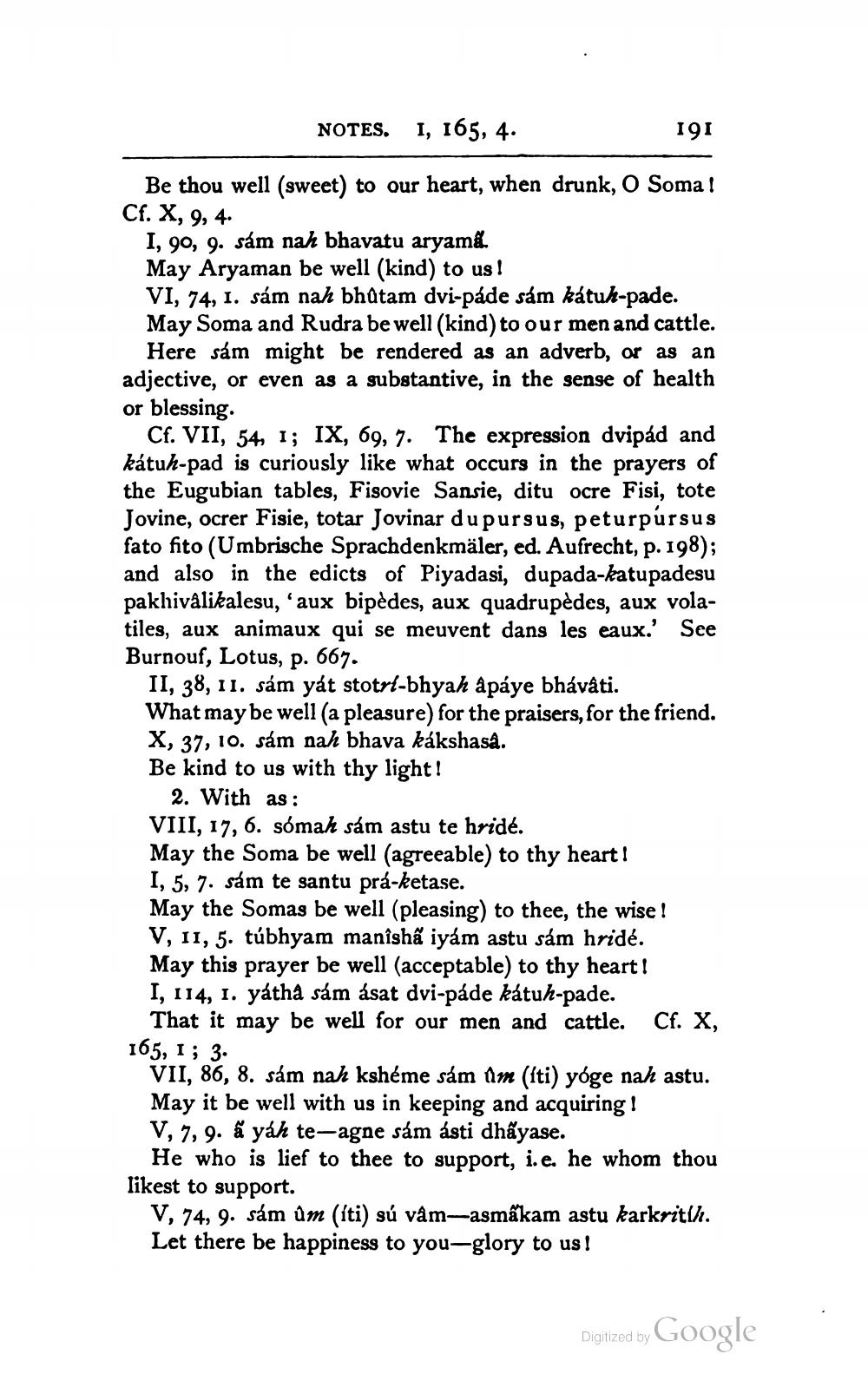________________
NOTES.
I, 165, 4.
191
Be thou well (sweet) to our heart, when drunk, O Soma! Cf. X, 9, 4.
I, 90, 9. sám nah bhavatu aryam.. May Aryaman be well (kind) to us! VI, 74, 1. sám nah bhůtam dvi-páde sám kátuh-pade. May Soma and Rudra be well (kind) to our men and cattle.
Here sám might be rendered as an adverb, or as an adjective, or even as a substantive, in the sense of health or blessing.
Cf. VII, 54, 1; IX, 69, 7. The expression dvipád and kátuh-pad is curiously like what occurs in the prayers of the Eugubian tables, Fisovie Sansie, ditu ocre Fisi, tote Jovine, ocrer Fisie, totar Jovinar du pursus, peturpursus fato fito (Umbrische Sprachdenkmäler, ed. Aufrecht, p. 198); and also in the edicts of Piyadasi, dupada-katupadesu pakhivalikalesu, 'aux bipèdes, aux quadrupèdes, aux volatiles, aux animaux qui se meuvent dans les eaux. See Burnouf, Lotus, p. 667.
II, 38, 11. sám yát stotrl-bhyah åpáye bháväti. What may be well (a pleasure) for the praisers, for the friend. X, 37, 10. sám nah bhava kákshasa. Be kind to us with thy light!
2. With as: VIII, 17, 6. sómah sam astu te hridé. May the Soma be well (agreeable) to thy heart! I, 5, 7. sám te santu prá-ketase. May the Somas be well (pleasing) to thee, the wise ! V, 11, 5. túbhyam manishã iyám astu sám hridé. May this prayer be well (acceptable) to thy heart ! I, 114, 1. yáthà sám ásat dvi-páde kátuh-pade.
That it may be well for our men and cattle. Cf. X, 165, 1; 3.
VII, 86, 8. sám nah kshéme sám Am (íti) yoge nah astu. May it be well with us in keeping and acquiring ! V, 7, 9. ã yah te-agne sám ásti dhấyase. He who is lief to thee to support, i.e. he whom thou likest to support.
V, 74, 9. sám um (íti) sú vâm-asmäkam astu karkritik. Let there be happiness to you-glory to us!
Digitized by
Digized by Google




